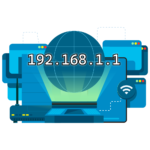Project Management Professional : PMP Certification Exam
In today’s competitive job market, standing out from the crowd is crucial, and one way to do that is by earning a Project Management Professional (PMP) certification. The PMP certification is globally recognized and demonstrates that you have the experience, education, and competency to lead and direct projects. Whether you’re looking to move up in your current organization or explore new opportunities, a PMP certification can significantly enhance your career prospects.

In this blog post, we’ll explore how earning a PMP certification can advance your career, the steps to obtain it, and tips for preparing for the exam.
Why Pursue a PMP Certification?
The Benefits of Being PMP Certified
- Global Recognition: The PMP is recognized worldwide, making it a valuable credential no matter where you work.
- Increased Earning Potential: PMP-certified professionals often earn higher salaries compared to their non-certified peers. According to the Project Management Institute (PMI), PMP certification holders earn 16% more than those without the certification.
- Enhanced Skills: The PMP certification process teaches you advanced project management techniques, tools, and best practices, which can be directly applied to your job.
- Career Advancement: The PMP credential can open doors to higher-level positions, such as project manager, program manager, and project director.
Important Link: Top IT Certifications to Boost Your Career in 2024
Understanding the PMP Certification Requirements
Who is Eligible for the PMP Certification?
Before you can take the PMP exam, you must meet specific education and experience requirements set by the Project Management Institute (PMI). Here’s what you need:
- Educational Background:
- A four-year degree (bachelor’s or the global equivalent) and at least three years of project management experience, with 4,500 hours leading and directing projects, along with 35 hours of project management education.
- OR a high school diploma or associate’s degree (or global equivalent) and at least five years of project management experience, with 7,500 hours leading and directing projects, along with 35 hours of project management education.
- Project Management Experience: Your experience must involve leading and directing projects, and it must be within the past eight years.
- Project Management Education: You must complete 35 hours of project management education. This can be achieved through training programs, workshops, or courses offered by PMI Registered Education Providers (R.E.P.s).
Important Link: PMI’s Official PMP Certification Page
Steps to Earning Your PMP Certification
1. Apply for the PMP Exam
The first step to earning your PMP certification is to apply for the exam. You’ll need to provide detailed information about your education, project management experience, and training. PMI will review your application, which typically takes about five days.
Application Tip: Gather all your project experience details, including the specific tasks you performed, before starting the application process. This will make it easier to complete the application accurately.
2. Prepare for the PMP Exam
Once your application is approved, it’s time to start studying. The PMP exam is known for being challenging, so thorough preparation is essential. Here are some strategies to help you prepare:
- Use the PMBOK Guide: The Project Management Body of Knowledge (PMBOK) Guide is the primary resource for PMP exam preparation. Make sure you’re familiar with all its content, as it forms the basis of the exam.
- Enroll in a PMP Prep Course: Consider enrolling in a PMP prep course to guide your study efforts. These courses are often offered online and provide structured learning with access to practice exams and expert instructors.
- Practice Exams: Taking practice exams is a great way to assess your knowledge and get comfortable with the exam format. Aim to complete multiple practice tests to identify areas where you need improvement.
Important Link: A Guide to Earning Your CompTIA Certifications: What You Need to Know
3. Schedule and Take the Exam
When you feel confident in your preparation, schedule your exam through PMI’s website. The PMP exam is offered at Pearson VUE test centers worldwide, or you can choose to take it online from the comfort of your home.
Exam Details:
- Duration: The PMP exam is a four-hour test with 180 questions.
- Question Types: The exam includes multiple-choice, multiple responses, matching, hotspot, and fill-in-the-blank questions.
Important Link: Schedule Your PMP Exam
Tips for Passing the PMP Exam
1. Understand the Exam Content Outline
The PMP exam content outline is divided into three domains: People, Process, and Business Environment. Familiarize yourself with these domains and understand how PMI expects you to apply your project management knowledge in these areas.
2. Use a Variety of Study Resources
While the PMBOK Guide is essential, using additional resources like PMP prep books, online courses, and flashcards can provide a more comprehensive understanding of the material.
3. Join a Study Group
Study groups can be a valuable resource for PMP candidates. They provide opportunities to discuss complex topics, share study tips, and motivate each other throughout the preparation process.
4. Practice Time Management
Time management is crucial during the exam. With 180 questions to answer in four hours, you need to pace yourself to ensure you have enough time to answer all the questions. Practice timed exams to develop your pacing strategy.
5. Focus on Understanding Concepts
Memorization alone won’t help you pass the PMP exam. It’s important to understand the underlying concepts and how to apply them in real-world scenarios. The exam tests your ability to think critically and solve problems based on project management principles.
Important Link: How to Get Started with AWS Certifications
After the Exam: Maintaining Your PMP Certification
Continuing Certification Requirements
Once you pass the PMP exam, your certification is valid for three years. To maintain your PMP status, you must earn 60 Professional Development Units (PDUs) during each three-year certification cycle. PDUs can be earned through activities such as attending webinars, taking courses, and participating in project management-related activities.
Career Advancement Opportunities
Earning your PMP certification can lead to new career opportunities. PMP-certified professionals are often considered for higher-level positions, including project manager, program manager, and project director. Additionally, PMP certification can increase your marketability to employers and give you a competitive edge in the job market.
Important Link: Continuing Certification Requirements Program
Conclusion
The Project Management Professional (PMP) certification is a powerful credential that can significantly advance your career. By earning your PMP, you demonstrate your commitment to the profession and your ability to lead and manage projects effectively.
The journey to PMP certification requires dedication and hard work, but the rewards are well worth the effort. With the right preparation and mindset, you can pass the PMP exam and open the door to new and exciting career opportunities.
Take the first step today by exploring your eligibility, preparing for the exam, and ultimately achieving your PMP certification. Your career in project management will never be the same!
Related
Discover more from Computer Climax
Subscribe to get the latest posts sent to your email.






One Response